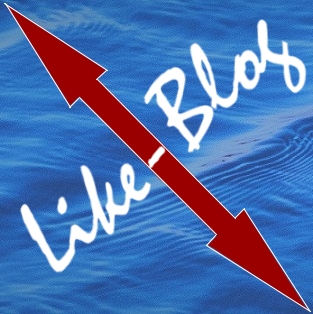Like-Blog
Presenting you the most interesting translation solutions

Why Like-Blog? Now, first of all, this blog is a blog that you should like (and read regularly) – at least, if you are interested in translation. Then, the topic discussed here is one in which the meaningful likeness between a text and its translation in the language pair English-German plays a key role. On this page, I will take a close look at some interesting translation solutions that I have come across in the course of my work as a translator and translation scholar.
A translation solution is only as good as the arguments that support it. This means that any translation criticism, whether positive or negative, needs to be justified. The quality of a translation solution shows only when we compare it to other possible translation solutions in a given translation situation. Therefore, a translation critic should not only say why a translation solution is bad, but also demonstrate what a better solution might look like. I will try to stick to these principles of translation criticism. So if you have any questions regarding my line of argument or if you disagree, please, let me know your opinion by phone at +49 4171 6086525 or by e-mail to bittner@businessenglish-hamburg.de. So much for the introduction. I hope you’ll enjoy reading this blog!
Shoot for the moon (August 2020)
In the blog post of November 2019, I looked at a sentence taken from an article I had read in Business Spotlight – a sentence that was interesting because of an editorial comment on how a particular expression should be translated. This month’s blog post is again about a sentence from Business Spotlight.
Just to remind you: Business Spotlight is a magazine for German-speaking professionals who wish to improve their business English. All articles come with an English-German vocabulary list prepared by an editor. It highlights important or interesting words and is convenient because the reader doesn’t have to consult a dictionary. This selective translation service is offered particularly for those words or expressions that are used in the text with a meaning different from their most common meaning. Such special translations are marked by an introductory “hier” or “hier etwa” followed by a colon.
In an interesting article titled “Perfectly imperfect”, published in Business Spotlight 4/20, Lois Hoyal discusses the problems and pitfalls of perfectionism. In the last paragraph, she recommends that, if you’ve done your best, you should pat yourself on the back, even though your performance was not as perfect as it should have been. The text closes: “And tomorrow, if you shoot for the moon but land among the stars, sit back, take it easy and enjoy the view” (p. 76).
The Business Spotlight editor remarks with regard to “shoot for the moon” that the expression is typical of American English and then translates: “‣ nach den Sternen greifen; hier etwa: sich etw. Großes vornehmen”. I don’t quite understand why the editor provides what, I believe, must be intended as a more precise meaning in the given context. Perhaps, “sich etw. Großes vornehmen” (take on something big) should suggest that this big something is still achievable, whereas the Duden defines “nach den Sternen greifen” as “etwas Unerreichbares haben wollen” (to want to have something unattainable). Depending on the context, however, the expression “nach den Sternen greifen” may also just mean taking on something big.
However, meaning is not the main point in my discussion of the editorial suggestion: what is crucial is the shift from a metaphorical level to a non-metaphorical level. In the original sentence, the moon metaphor is followed by a star metaphor. A translation of the whole sentence would either have to retain the metaphorical level for both elements or disregard the metaphor altogether and go for the general meaning throughout. The latter option might result in: Und morgen, wenn Sie sich etwas Großes vornehmen, aber nur etwas Kleines dabei herauskommt, lehnen Sie sich zurück, entspannen Sie sich und genießen Sie die Aussicht. (And tomorrow, when you take on something big but achieve something small only, sit back, take it easy and enjoy the view.) While such a rendering, it is true, works for the two metaphorical elements, it does not work when we consider the rest of the sentence: from where should you enjoy the view? For this translation to make sense, the reader would have to imagine a corresponding location. This is not necessary in the original, where you can enjoy the view from one of the stars among which you have landed.
Retaining the metaphor is, therefore, not only more appealing stylistically, but also more convincing when considering the context: Und morgen, wenn Sie nach den Sternen greifen und auf dem Mond landen, lehnen Sie sich zurück, entspannen Sie sich und genießen Sie die Aussicht. (And tomorrow, if you reach for the stars but land on the moon, sit back, take it easy and enjoy the view.) Well, there’s a spendid view to be enjoyed also from the moon. Interestingly, the German version and its back-translation (which strikes me as an acceptable alternative to the English original) reveal that the reversal of the images of the moon and the stars has an advantage: just as the stars are more remote and, thus, more unattainable than the moon, so is what you actually wanted to achieve more remote than what you have actually achieved. In the original sentence, the metaphor merely suggests that you achieved something different from what you wanted to achieve.
